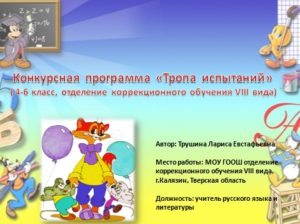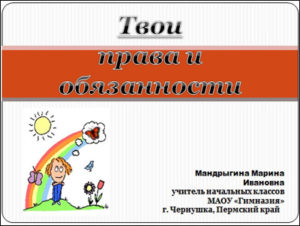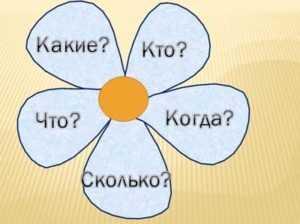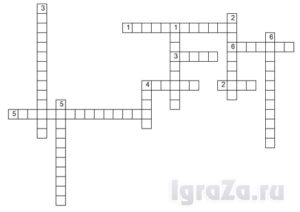labour-trainer
Kamensk correctional school No15 (VIII type)
Class type:Features of the legal status of minors
Subject:Rights and duties of minors
Tasks:
1. Educational:
Acquaint students with international documents on the rights of the child;
- to acquaint students with the rights of the child, enshrined in the Family Code of the Russian Federation and the Civil Code of the Russian Federation.
2. Developing:
Develop the ability to exercise their rights in everyday life.
3. Educational:
To educate students about their rights and the rights of another person.
Skills and skills learned in the class:
learn to choose the main thing and correctly formulate their conclusions;
be able to defend their point of view;
apply the knowledge gained in life situations;
Develop communication skills and skills during the lesson.
Equipment:interactive whiteboard, computer.
-
- Organizational and preparatory phase
PurposePreparing students to work in the classroom.
Content of the phase:
Enter the classroom and find your place.
- mutual greetings;
- the attitude of students to work, organization of attention;
Checking readiness for the lesson (workplace, working posture, appearance);
- communication of the topic and objectives of the lesson.
Class progress:
- Hello, guys! Sit down quietly, everyone in your seat. Make sure that nothing is left on the desks, turn off the phones. Sit right, hold your back straight.
-
- Propaedeutics of students to master new material
Purpose- organize cognitive activity of students. Report the topic, goals and objectives of studying a new material, show the practical importance of studying a new material, attract attention and arouse interest in studying a new topic.
The topic of our lesson: “Features of the legal status of minors”. Today we will get acquainted with the concept of “right”, with the history of the emergence of law, what rights do minors, that is, children.
-
- Communication of new material
PurposeGive students a concrete idea of the subject under study.
Type of message of new material:
- The teacher's story.
How do you understand such a thing as human rights?
(Human rights are the inalienable rights of every person, regardless of his or her nationality, place of residence, sex, ethnicity, colour, religion, language or any other attribute. All people have human rights equally, excluding all forms of discrimination. These rights are interrelated, interdependent and indivisible.
Theme of our lesson "Features of the legal status"juvenile? Do you know who we are talking about? (Children under the age of 18)
Is this topic relevant in our time? (Yes, as child neglect and crime grow, more and more children with living parents are left to themselves, the number of refugee children is increasing, and the percentage of newborns with a doctor’s opinion is “healthy” is decreasing.)
What international documents do you know about the rights of the child? (Convention on the Rights of the Child, 1989); Basic rights of the child enshrined in the IC of the Russian Federation and the Civil Code of the Russian Federation; legal capacity and legal capacity of minors.
(a) Convention on the Rights of the Child 1989
The Convention on the Rights of the Child was unanimously adopted in 1989. United Nations General Assembly.
All problems related to the protection of children and children are taken into account in the content of the Convention on the Rights of the Child, the main purpose of which is to encourage States to make every effort to solve these problems. Our state has signed this document.
The Convention requires that all children of the Earth have the same rights. Parliaments and governments should legislate to ensure that all children in their country have equal and broad opportunities for personal development.
Basic provisions of the Convention:
- Every child has an inalienable right to life and the State shall ensure to the maximum extent possible the survival and healthy development of the child.
- Children have the right to express their views freely.
- Parents have primary responsibility for raising the child.
States should assist them and develop a network of childcare facilities.
- The child has the right to education.
- The State shall respect the right of the child to freedom of thought, conscience and religion.
- No child under the age of 15 shall take part in hostilities.
- No child shall be the object of arbitrary or unlawful interference with the exercise of his or her right to privacy, home or correspondence, or of unlawful interference with his or her honour and reputation.
The Convention on the Rights of the Child does not only include rights. It clearly indicates the boundaries of the transition from childhood to adulthood.
Only by birth, a person acquires by law to have rights and bear duties - constitutional, family, civil, labor, etc. However, their real implementation is possible only as the child grows up.
Age: 0 months to 6 years.
They call you a baby.
Your legal capacity:Incapacitated, this is due to the fact that the child, due to his small years, cannot understand and be responsible for his actions.
You were born.
You're acquiring citizenship.
You have legal capacity under civil law.
You have the right to name, patronymic and surname.
You have the right to live and be brought up in a family, to know your parents, to receive protection of your rights and legitimate interests from them.
A bank account may be opened in your name.
You're 1.5 years old.
You have the right to visit the nursery.
You're 3.
You have the right to attend kindergarten.
Age: 6 to 14 years.
They call you a baby.
Your legal capacity:You have partial legal capacity, that is, you can not make all transactions, but only those that you need every day - small household transactions. This means that you can buy any products, stationery, other things and items in the store. You can also make transactions aimed at obtaining benefits that do not require a notary certificate or state registration. If you cannot make a deal, your parents, adoptive parents or guardians may act on your behalf.
You're 6.
From 6 years 6 months you can attend school. At the request of parents, adoptive parents or guardians and with the permission of the founder of the educational institution, you can start your studies at an earlier age.
You have the right to conclude for yourself:
- small domestic transactions;
transactions aimed at gratuitous receipt of benefits that do not require a notarial certificate or state registration;
transactions on the disposal of funds provided by legal representatives.
You are 10 years old.
From this age you are:
You agree to change your name and surname;
consent to your adoption or transfer to a foster family or to the restoration of parental rights of your parents;
Express your opinion about which of the parents who divorced in court, you would like to live with after the divorce;
have the right to express their opinion when deciding in the family any issue affecting your interests;
the right to be heard in any judicial or administrative proceedings;
You can join children’s associations.
Ages 14 to 18.
They call you a minor.
You're 14.
From this age you must have a passport of a citizen of the Russian Federation.
From this age, you give written consent to relinquish Russian citizenship together with your parents.
You can choose your place of residence with the consent of your parents.
With the written consent of the parents, they are entitled to make any transactions.
You have the right to manage your earnings, scholarships and other income.
You may exercise the rights of the author of a work of science, literature or art, invention or other legally protected result of your intellectual activity.
You have the right to make deposits in credit institutions and manage them.
It is allowed to enter a job to perform light work in the free time of study (with the consent of one of the parents).
You have the right to cancel the adoption
You have the right to drive your bike on the road.
You can join youth associations.
Depending on where you live, you have the right to marry.
It must be remembered that:
From this age, you are responsible for the transactions you have made.
You are subject to criminal liability for certain crimes: murder, intentional infliction of grave bodily harm, intentional infliction of moderate serious bodily harm, kidnapping, rape, sexual assault, theft, robbery, robbery, extortion, unlawful possession of a car or other vehicle without the purpose of theft, intentional destruction or damage to property under aggravating circumstances, terrorist act, hostage-taking, vandalism, etc.
You're 15.
You have the right to enter into an employment contract for light work.
You're 16.
You can be declared fully capable (emancipated) if you work under an employment contract, including a contract, or with the consent of your parents, adoptive parents or guardian engage in entrepreneurial activity.
You can be a co-op member.
You have the right to drive a motorcycle, scooter and other motor vehicles.
You have the right to enter into an employment contract.
You can marry, but if there are good reasons (pregnancy, childbirth) and with the permission of local governments.
Remember that:
From now on, you are subject to administrative responsibility.
You are criminally responsible for any crime.
You're 18 years old!!!
{module Google_kvadrat}
(b) Basic rights of the child enshrined in the IC of the Russian Federation and the Civil Code of the Russian Federation
1. Organization of work with the articles of the above codes(Together with the teacher make a diagram in the notebook).
|
Personal rights of children |
Property rights of the child |
|
|
Activity
Civil Code of the Russian Federation, Art. 26 - 28
|
Young children |
Minors |
|
|
From birth to 6 years |
6 to 14 years old |
14 to 18 years old |
|
You have the right to do it yourself:
Responsibility for transactions is borne by parents, adoptive parents, guardians. They are responsible for the harm caused to minors. |
You have the right to do it yourself:
They are also responsible for the damage they cause. |
-
- Consolidation of knowledge
PurposeTo consolidate the acquired knowledge and skills, to teach to apply knowledge in a similar situation.
MethodWatch videos on the subject.
- Final phase
Purpose- draw a conclusion and summarize how the children worked, find out what the new children learned in class.
-Conclusions;
Questions about understanding the material studied.
Bring the child’s body to a relatively calm state, create a resting installation, and finish the lesson in an organized manner.





